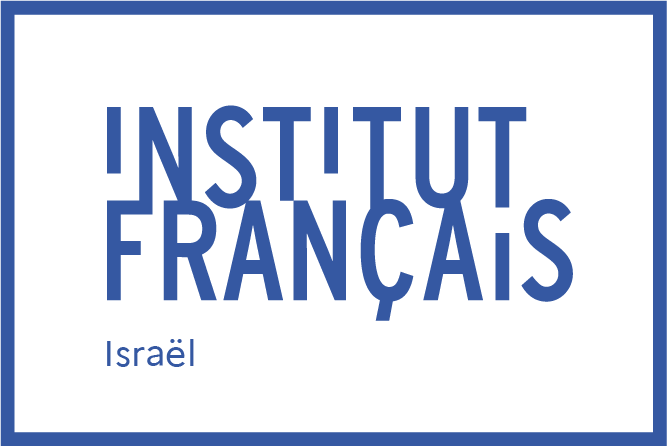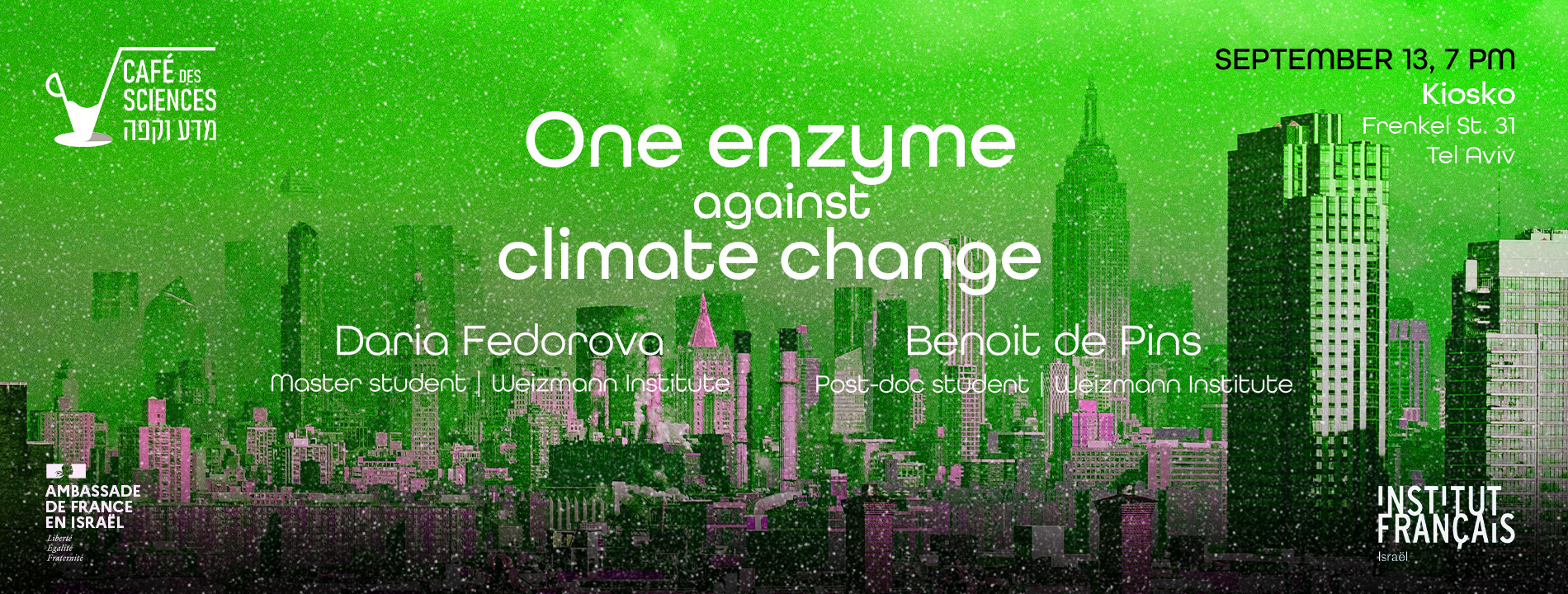מדע וקפה : One enzyme against climate change
One enzyme against climate change
Benoit de Pins, post-doctoral student in the department of Plant and Environmental Sciences at the Weizmann Institute of Science, and Daria Fedorova, master student in the department of Plant and Environmental Sciences at the Weizmann Institute of Science
Tuesday September 13, 7pm
Kiosko | HaRav Yizkhak Yedidya Frenkel 31, Tel Aviv
The French Institute in Israel is pleased to announce that the Cafe des sciences will take place again in Tel Aviv with a next event scheduled on September 13th at Kiosko, featuring Daria Fedorova and Benoit de Pins, post-doctoral student, respectively master student and post-doctoral student from the department of Plant and Environmental Sciences at the Weizmann Institute of Science. This meeting, in English, will focus on new researches showing the interest of an enzyme to tackle climate change.
The Cafe des sciences is an invitation to explore a scientific topic in a friendly place where science enthusiasts, curious or lay people can discuss popular scientific questions with researchers and academic experts in the field. For this 6th meeting, still part of the “Women in Science” cycle, the French Institute invites Daria Fedorova, accompanied by Benoit de Pins, both of them researchers from the department of Plant and Environmental Sciences at the Weizmann Institute of Science, whom work focuses on enzymes and bacteria that could help us addressing climate change, notably by being able to fixate the CO2.
Daria Fedorova grew up in an industrial town in Russia, which gave her the interest in environmental issues. She started her career in science at the age of 16 and works on a project of bioplastic production from food waste. Then, she studied in Paris for her bachelor and master at the LPI (Learning Planet Institute), where she discovered the role of bacteria to tackle environmental challenges. Daria decided to continue her research at the Weizmann Institute of Science in the lab of Prof Ron. Milo, like Benoit. In this lab, the past 15-year research works led to the creation of the first synthetical autotrophic bacteria able to grow up with CO2instead of glucose. Daria is currently working on the bioplastic production within this bacteria in order to be able to use it at an industrial scale for a production of chemicals with a negative CO2 emission.
Benoit de Pins is a French biochemist who holds an aggregation in biochemistry from the Ecole Normale Supérieure Paris-Saclay. Then, he did his PhD in neurosciences at Sorbonne University in Paris. Benoit is currently a post-doctoral student at the Weizmann Institute of Science in the department of Plant and Environmental Sciences in the lab of Prof. Ron Milo. He works on an enzyme called Rubisco, which is the most abundant enzyme in the biosphere (in plants, algae and bacteria) and the primary catalyst for autotrophic carbon fixation. This enzyme is however quite less efficient in plants and Benoit is then working on a project aimed at searching for the fastest Rubisco in the biosphere. Identifying a Rubisco with better kinetic parameters will pave the way for increasing plant productivity and for the development of alternative low-cost biofuels.
מידע כללי
One enzyme against climate change
Benoit de Pins, post-doctoral student in Plant and Environmental Sciences at the Weizmann Institute of Science
Daria Fedorova, master student in Plant and Environmental Sciences at the Weizmann Institute of Science
Tuesday September 13, 7pm
Kiosko | HaRav Yizkhak Yedidya Frenkel 31, Tel Aviv
Free entrance | lecture in English
Please confirm your attendance by email



